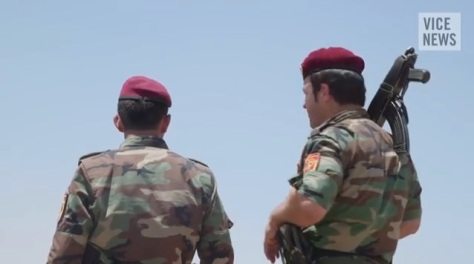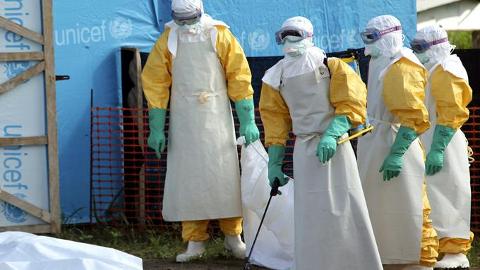(Source: “Family calls Ankeny police raid excessive,” Des Moines Register, 4 February 2014, by Grant Rodgers and Jens Manuel Krogstad)
Justin Ross was in the bathroom next to his bedroom when a squad of Ankeny police officers rammed through a side door of his home.
It was just before 10:20 a.m. Thursday, and the officers — wearing body armor and carrying rifles — used a battering ram to enter the house on the east side of Des Moines. According to a search warrant, they were looking for cellphones, a television, other electronics and clothes they say might have been purchased with stolen credit cards.
“I want to know why they didn’t just knock, why they didn’t communicate with anybody outside of taking a battering ram to the door,” Ross, 24, said. “I’ve never been anything but cooperative so they had no reason to believe anybody was going to resist … If they’d have just knocked and said, ‘Hey, can I search,’ we would have let them.”
Critics say the search, which is gaining national attention, was an excessive, military-style raid for a credit card theft case. Ankeny police are defending the raid, saying they needed to use that approach to protect officers’ safety.
Ankeny police Capt. Makai Echer said officers knew at least one person in the house had a permit to carry a firearm. She said the department isn’t currently investigating how officers handled the search, nor does the department have a written policy for executing warrants.
“Every warrant that we do is based on information we have about the subjects in the residence we’re entering,” she said.
No one had been charged by Tuesday with crimes stemming from the credit card theft, but Echer said police have requested arrest warrants after finding items purchased illegally. She would not say how many warrants were requested, for what specific charges or what items police believe were purchased with the cards.
Radley Balko, a journalist who blogged about the incident on WashingtonPost.com, said the type of force used by Ankeny police is on the rise nationally.
“I think there is cause for great concern when it comes to the idea of state and local governments using more and more force for increasingly petty crimes,” said Balko, the author of “Rise of the Warrior Cop: The Militarization of America’s Police Forces.”
At least two doors kicked open by police were damaged, as well as a side door that police used a battering ram to open, said Ross, who lives at the east Des Moines house.
He and three others were in the house in the 2100 block of East 41st Street, where he lives with his mother, when the officers arrived. Ross said he originally thought people were in the house fighting.
Ross said he had his 9mm handgun with him and took it out, but quickly holstered it when he heard someone call out “police.”
Ross said he handed the weapon to an officer who entered the bathroom and was handcuffed as police began their search.
Experts question if tactic was necessary
The search has sparked debate over whether the show of force was necessary or violated civil liberties.
A search warrant given to Ross indicates officers were looking for a variety of electronic devices and clothes. It does not detail what led officers to the east-side home or its occupants; such information is regularly provided when warrants are filed in Polk County District Court.
Drake University law professor Mark Kende, who watched video of the incident, questioned whether a group of armed officers was necessary and “professional” for a simple credit card theft case. Bringing so many firearms into the house could have caused more danger unless officers believed the people inside would be combative, he said.
“As a matter of common sense, it’s really bad policy, even though we expect police officers to take extra precautions to protect themselves,“ Kende said. “To come in with that much firepower and in that particular way is just an invitation to a terrible, tragic accident, which fortunately didn’t occur in what appears to be a credit card case.”
Credit card fraud cases typically involve a detective or two knocking on the door, said police consultant and former Des Moines Police Chief William Moulder.
However, the number of officers involved in last week’s incident and a quick entry with a battering ram suggests Ankeny police believed the team was searching a dangerous home, he said.
“What I observed is a high-risk entry plan that’s usually associated with knowing there are armed and dangerous people on the inside,” Moulder said. “None of us know — outside of the Ankeny police — what information they had going in.”
Two arrested on unrelated warrants
Two of the people in the house, Richard Forstier Adair, 35, and Miranda Nikol Scigliano, 27, were arrested on unrelated warrants, Ross said.
Adair faces charges of narcotics possession with intent to deliver, while Scigliano was charged with a probation violation. The couple has lived at the house for about a month.
Ross said he and his mother took the couple in but did not know about the outstanding warrants.
As police entered the house, one officer tore out one of the security cameras Ross installed to monitor the property. He said they had cameras because he and his mother had trouble with car burglaries.
In the basement, Ross said, an officer tried to cover another camera with blankets.
He questioned why police didn’t want to be taped.
Covering or disabling cameras is standard procedure for officers executing a search warrant or raid to ensure people inside can’t monitor approaching officers, Moulder said.
Ross, who has a clean criminal record except for traffic violations, said that he feels lucky that he realized the commotion was coming from police officers and put down his gun before the door was opened.
He said he also gets nervous when he hears the doorbell ring or a knock now.
“Every time somebody knocks on the door, every time somebody’s here, I have to wonder, ‘Are they coming back?’” he said. “Have they found a reason they want to arrest me?”
41.600545
-93.609106
















